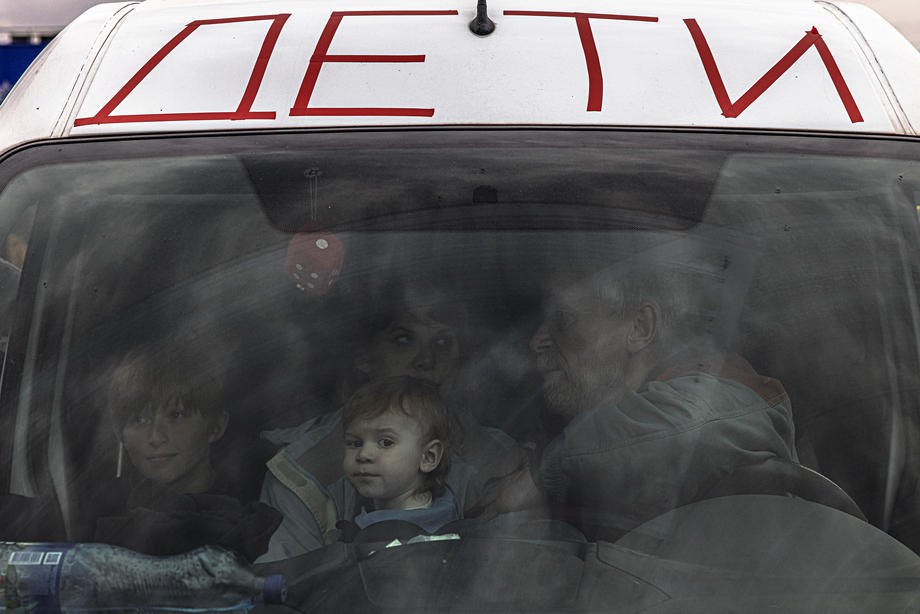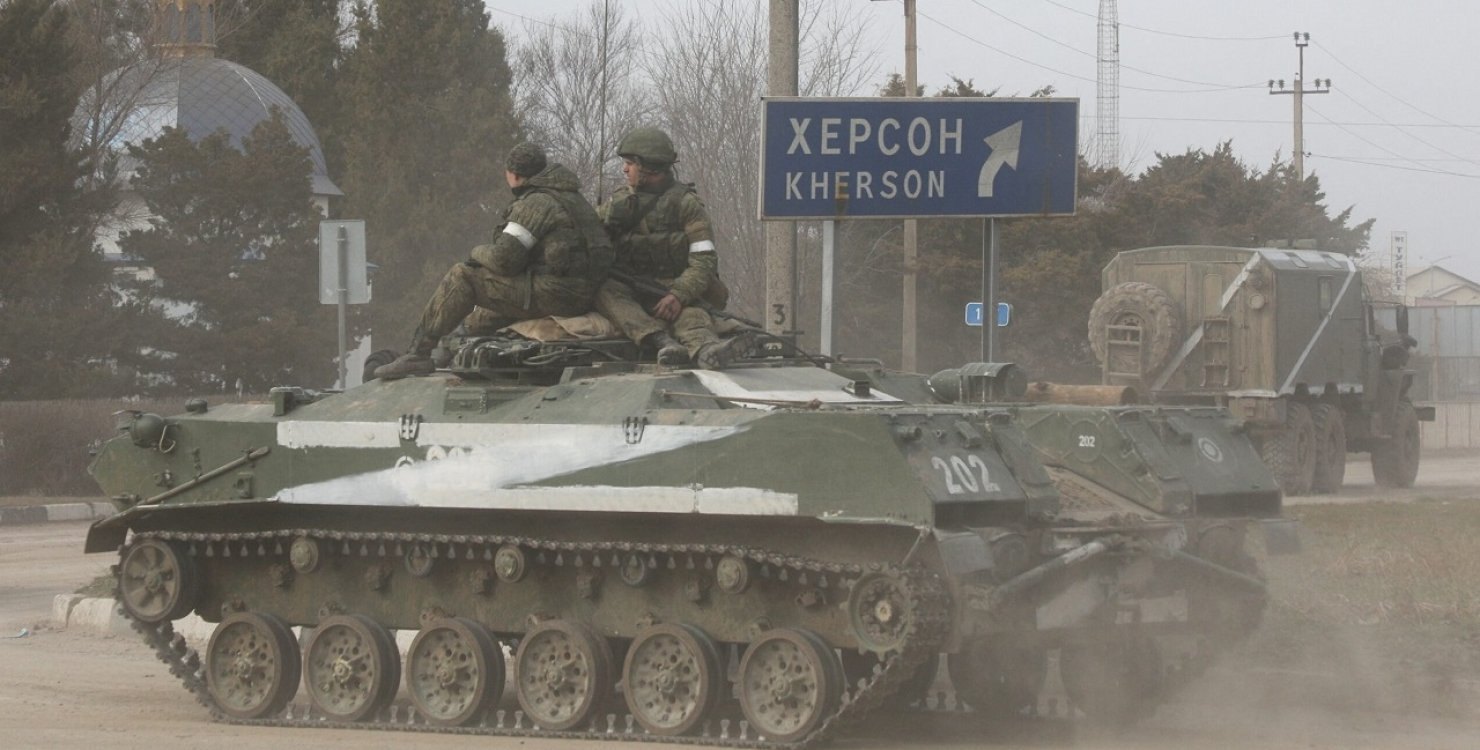
Mykola, a resident of Kherson:
After the occupation of Kherson, my acquaintances and I found a wholesale base with cereals, canned food, and tea, which periodically received goods to replenish their stocks. It was agreed that these additions would be sold to us, and we then exported the goods to several points, where volunteers packed food kits and gave them to the needy. By doing so, we actually disrupted the "acts of obedience" of the russians, who were handing out their humanitarian aid.
We later learned that the russians were compiling lists of activists, so we decided to protect ourselves and our families and evacuate.
During the occupation, Kherson residents explored three evacuation routes that had been operating for some time. How did we find out about them? People at their own peril tried different options for leaving, and if they succeeded - texted in the chat. This is such a russian roulette, only instead of a pistol you see a heavy weapon nearby.
The russians often banned passing, citing hostilities or leadership orders, and sometimes honestly saying that the previous column had been shot.
My family and friends failed twice – we stood at the checkpoint for seven hours and we were turned back.
On the day of the successful departure, we left for the collection point at 4:30. The first of the seven checkpoints we stood for about an hour and a half. There were about 500 cars in the convoy, which is about two thousand people.
Each checkpoint is a lottery, whether the occupiers like you or not. If they liked me – I drove fast, if not – they started a brutal inspection, "shmon" of the car and additional questions.
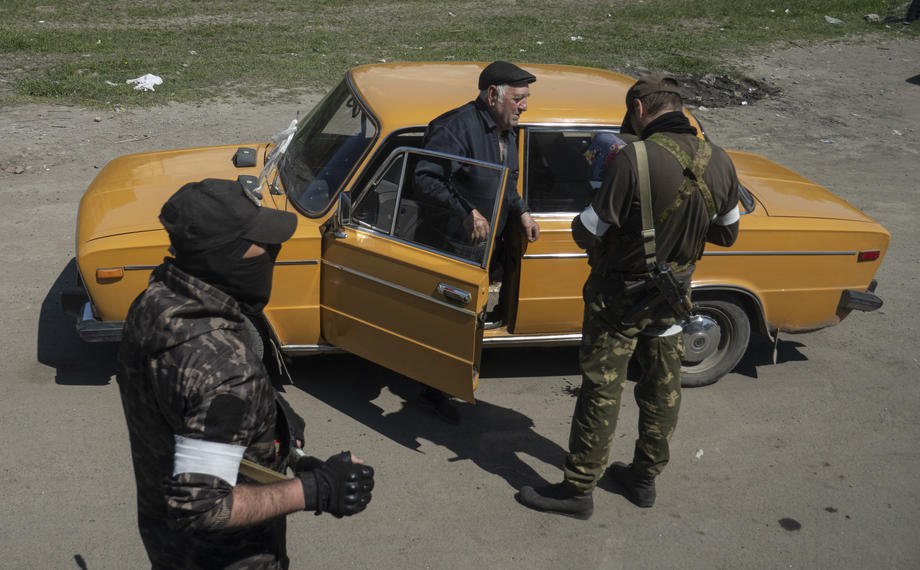
At the entrance to the unoccupied territories, the russians cut off communications, so we had to ask the locals for a better road with fewer russians. And the locals, who live without water, gas, and electricity, tried to help and were sincerely glad that we were going to the territory without the occupiers.
During the evacuation, the hardest thing is to accept that you are losing a part of your life: work, lifestyle, things, house. It's hard to see russians at checkpoints looking at you and wondering," Are you leaving out of liberation?" Although I think they know they are not welcomed here, they do not understand why.
Natalia, a resident of Kherson:
We decided to leave the city because I am a member of Plast - a national scout organization, a public figure and I have a patriotic family. It was dangerous for us to stay in Kherson, because kidnapping the participants of the rally "Kherson is Ukraine" started, and we also took part in it and did not hide it.
At first, we planned to leave for Mykolaiv, but this route was closed. We explored another and went in a column, with friends. The route was on roads that are not marked on the map, there was no connection and no internet while driving. So, we memorized the maps and the route for the trip.
My children and I hardly speak russian, so we had to keep quiet all the way. The russians recorded and photographed the drivers' passport data at checkpoints, with one occupant looking at the passport and the other watching the car so that no one could film anything.
When we saw our military, we couldn't believe it. I wanted to get out of the car and hug them, but the military ordered us to go further, to a safer place. I handed out motanka dolls to our military, which I made in Kherson. At one of our checkpoints, a soldier saw children in a car, asked them to wait, and brought them food kits. The kids were so excited that I didn't even know what to say.
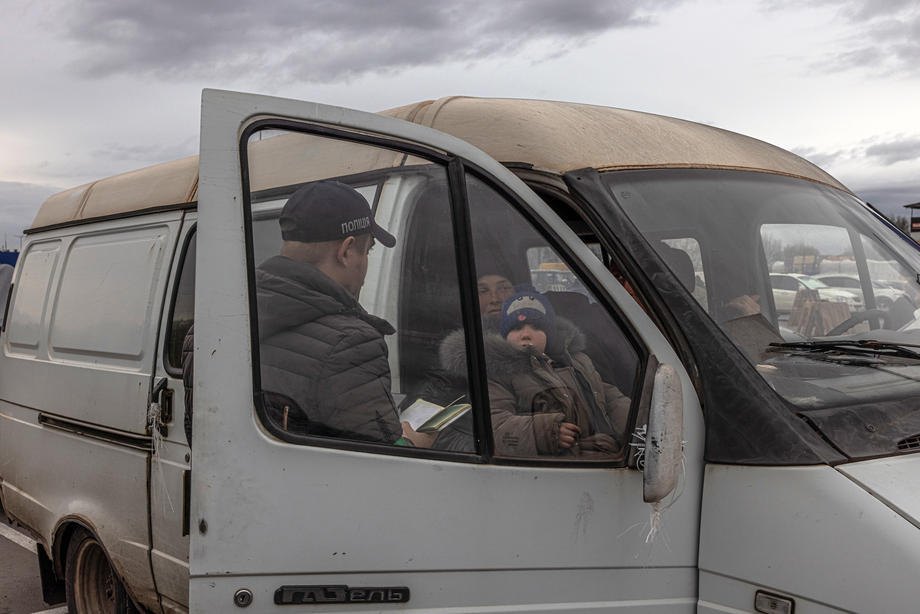
Vitaliy, a resident of Kherson:
When the russians entered the city, they fired on the house next to mine, killing people in the park. We had no desire to live in russia, so we went to meetings against the occupation. The russians began to disperse us: they fired, threw light-noise grenades, one of which exploded next to my old mother.
The feeling when you are under occupation is strange. You walk around the city, you see people, you do something. You hear on the news "we are about to liberate Kherson", you get hope, and then nothing happens – and it breaks something. I felt like I was being held hostage by russian terrorists. Not to go crazy, my family and I went to the Dnipro river every day, watched movies and TV series in the evenings, but it didn't save me.
We had gas, heat, and light at home, so we didn't really want to leave Kherson. But one day the puzzles came together, and we decided to go.
I printed a map, route, and downloaded offline maps to my phone. I transferred photos from the phone to Google Drive, deleted all social networks from the phone, completely cleaned the laptop and removed everything that could provoke the russians.
We left Kherson in the morning. The first russian checkpoint was completed in 40 minutes. The next ones were mobilized residents of Donetsk, who looked a little strange without uniforms, but with machine guns, and behaved differently. It seems that this was a lure for the Ukrainian military.
During the movement there was an unpleasant situation: our column made a mistake and went the wrong way – just to the occupiers with an armored personnel carrier in the forest. Thank God, it ended well, they asked us for food and cigarettes, which we did not have.
When I saw the military speaking Ukrainian, I wanted to cry. Kherson is Ukraine, and we really want to go home.
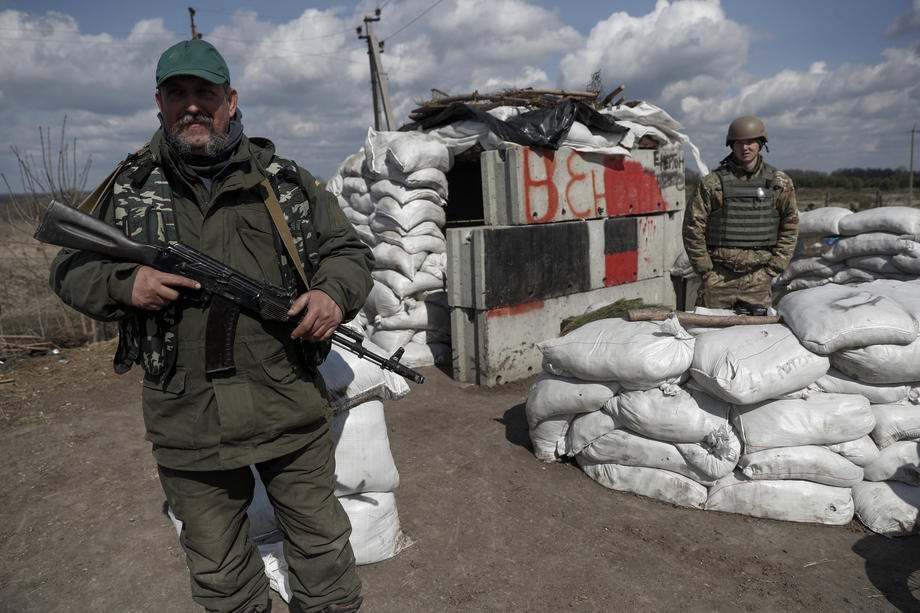
Viktoria, an activist from Kherson:
We did not expect the Kherson region to be occupied in the first days of the war. I hoped that there would be no occupation, but when the russians began to occupy village after village in the first days of the war, I understood that we were blocked. My assumption that it would be safer for my mother in the village than in Kherson turned out to be wrong: the russians drove vehicles from Nova Kakhovka to the Mykolaiv region through our village, later buried tanks, infantry fighting vehicles, cars, fenced bags and conducted daily training.
After learning about the atrocities of the russians in Bucha, I decided to go with my mother to the unoccupied territory.
The most difficult thing was to leave the village because Kherson is only 20 kilometers and 11 checkpoints. I did not expect that there would be so many russians.
We were already leaving the city through the fields broken by the battles, we had to go around the burned vehicles, move to the sounds of explosions and the roar of enemy planes. There were more than 300 cars in the convoy.
There were six russian checkpoints on the way, where they checked documents, but usually only the driver was asked to open the trunk, but inspected visually, did not touch things, and asked where we were going. At one checkpoint we were asked not to be afraid of them, but I know cases when people were deprived of food, money, and equipment. On the other hand, the russian asked if I had cigarettes or alcohol with me, to which I pushed a pack out the window. "No more," he said, taking only one cigarette.
If at the first checkpoints near Kherson there were some obscure units with military oriental appearance in cheap uniform and on old civilian vehicles marked "z", then closer to the unoccupied territory stood well-equipped soldiers in bulletproof vests with heavy equipment around the checkpoint.
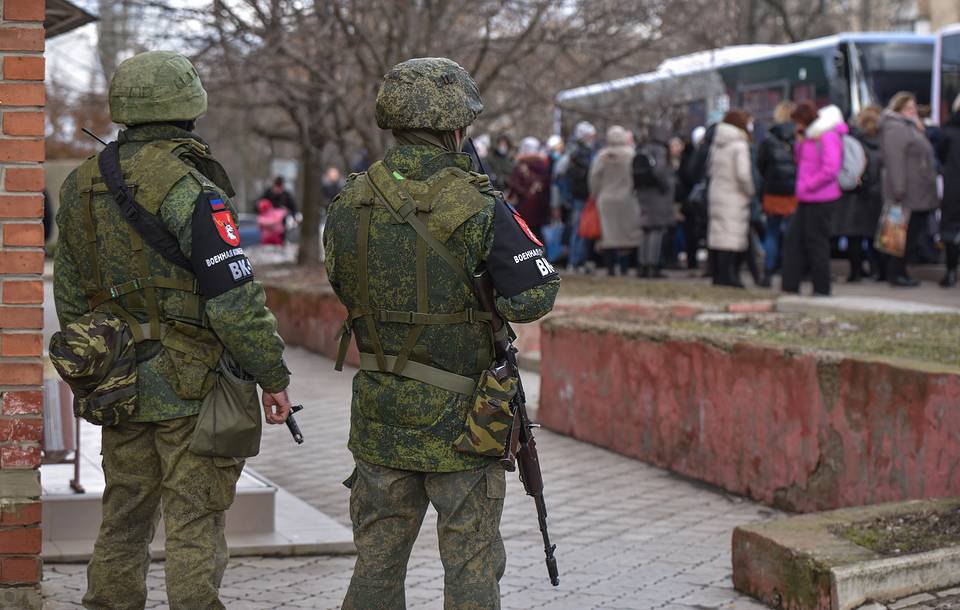
It is difficult to understand where our territory begins, because there is no connection, no people. As we approached our checkpoint, a middle-aged man approached us and greeted us. I asked to lower the rear window of the car, where my acquaintance was sitting with two children aged 11 and 13. He handed them a bar of chocolate. It was so touching... The kids kept that chocolate all the way
At the next checkpoint, the boys again gave the children cookies, asked if it was difficult to go, but did not ask for any specific information about the number of orcs or their equipment, probably because they knew everything.
If we compare the military from two sides, in ours we saw unrealistic confidence, understanding of what they are doing and why they stand here. And the russians are kind of unstable, nervous, and angry.
